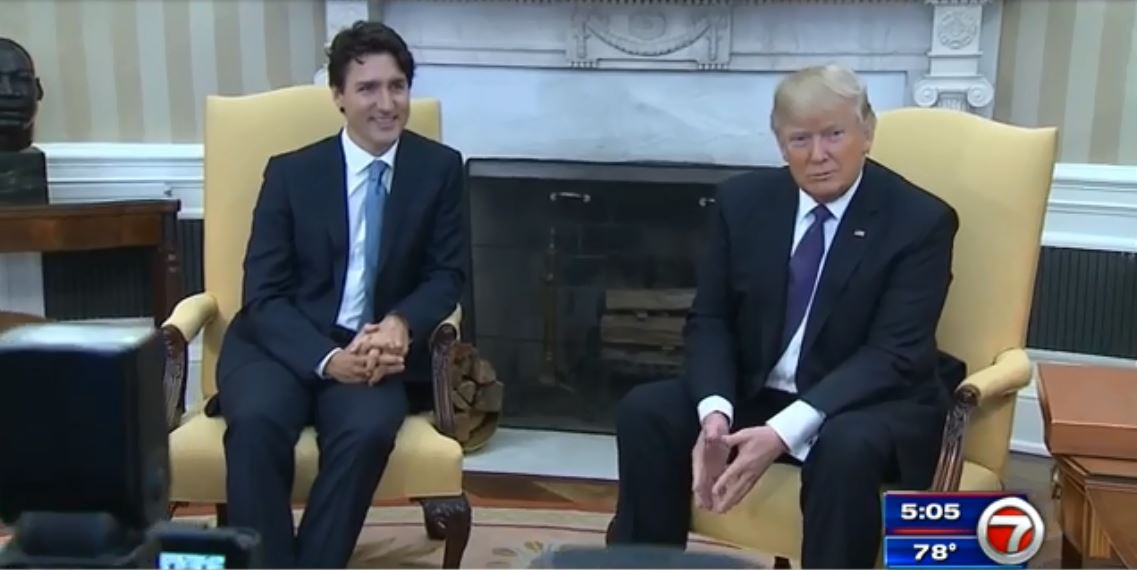Trump’s Comments Spark a Wave of Canadian Patriotism
In a recent statement, President-elect Donald Trump suggested that Canada should become the 51st province of the United States. This audacious remark quickly stirred up a storm of backlash and expressions of national pride among Canadians. Prominent figures, including former Prime Minister Jean Chrétien, condemned Trump’s comments, asserting that they are detrimental to the longstanding relationship between the two nations. As the world watched, Canadians rallied to defend their sovereignty and national identity.
Jean Chrétien’s Response
Jean Chrétien, who led Canada from 1993 to 2003, took to the pages of the Globe and Mail to articulate his disapproval. On the occasion of his 91st birthday, he stated emphatically that Trump’s comments “are no longer a joke” and could pose a significant threat to the alliance that has traditionally characterized U.S.-Canada relations. Chrétien reaffirmed, “Canada would never agree to become part of the United States,” countering Trump’s proposition with a firm declaration of national independence.
Pride in Canadian Identity
In his article, Chrétien highlighted the value that Canadians place on their independence and their distinct national identity. He expressed that Trump’s remarks amounted to an “unacceptable insult” and called upon Canadians to rally against such threats. His assertion that “everyone from old to young shake their heads at Donald Trump!” reflects a collective sentiment among Canadians who see their nation as a bastion of independence and dignity, immune to external pressures.
Broader Implications of Expansionist Rhetoric
Trump’s penchant for expansionist rhetoric has not only been directed at Canada but has also encompassed various international territories and alliances. By proposing to expand American influence over territories like Greenland and the Panama Canal, he has provoked concerns among many U.S. allies who are wary of the implications for global diplomacy. Canada, being the U.S.’s closest ally, finds itself uniquely positioned in this geopolitical landscape, which necessitates continued vigilance.
Fear of Economic Retaliation
In this climate of uncertainty, Canadian officials are already engaging with members of the incoming Trump administration, particularly concerning issues surrounding border security and trade. Trump has floated the possibility of imposing steep tariffs—up to 25%—on Canadian goods, a move that Canadian officials are eager to mitigate. Trade between Canada and the United States is significant, with around C$3.6 billion worth of goods and services exchanged daily, making it in both countries’ best interests to maintain a cooperative relationship.
The Shadow of Past Tariff Wars
The specter of Trump’s previous trade policies looms large over current discussions, particularly given the retaliatory tariffs implemented by Canada in 2018 following the Trump administration’s imposition of tariffs on Canadian steel and aluminum. Such retaliatory measures have historically triggered further economic disputes, complicating the economic relationship between the neighboring countries.
Conclusion
As the dialogue continues between Canada and the incoming U.S. administration, there remains an unmistakable tension fueled by comments from President-elect Trump. Canadian leaders, guided by a sense of national pride and a commitment to sovereignty, are at the forefront of defending their country against what they perceive as significant threats. The discussion surrounding Canada’s status as a nation is emblematic of broader themes in international relations—issues of sovereignty, national pride, and the economic interconnectedness that complicate these dynamics. Ultimately, the mutual interests between Canada and the United States will likely dictate the course of future relations, while sentiments of loyalty to the Canadian identity will remain vital for the populace.
FAQs
What did Donald Trump say about Canada?
Donald Trump suggested that Canada should become the 51st province of the United States, which sparked outrage in Canada and prompted discussions about national sovereignty.
How did Jean Chrétien respond to Trump’s comments?
Jean Chrétien condemned Trump’s remarks as an unacceptable insult and a threat to Canadian sovereignty, reinforcing the importance of Canada’s independence.
What are the economic implications of Trump’s comments?
There are concerns about the potential for high tariffs on Canadian goods under Trump’s administration, which could strain the economic relationship between Canada and the United States, a partnership that is pivotal for both economies.
How have past tariffs affected Canada-U.S. relations?
In the past, retaliatory tariffs have led to trade wars, significantly impacting industries on both sides of the border and creating animosity between the two nations. The 2018 tariffs imposed by Trump led Canada to retaliate, demonstrating the fragility of trade relations.
What is at stake for Canada if Trump’s expansionist rhetoric continues?
If such rhetoric continues, it could endanger the longstanding alliance with the United States and challenge Canada’s sovereignty, while potentially leading to economic instability due to trade tensions.

